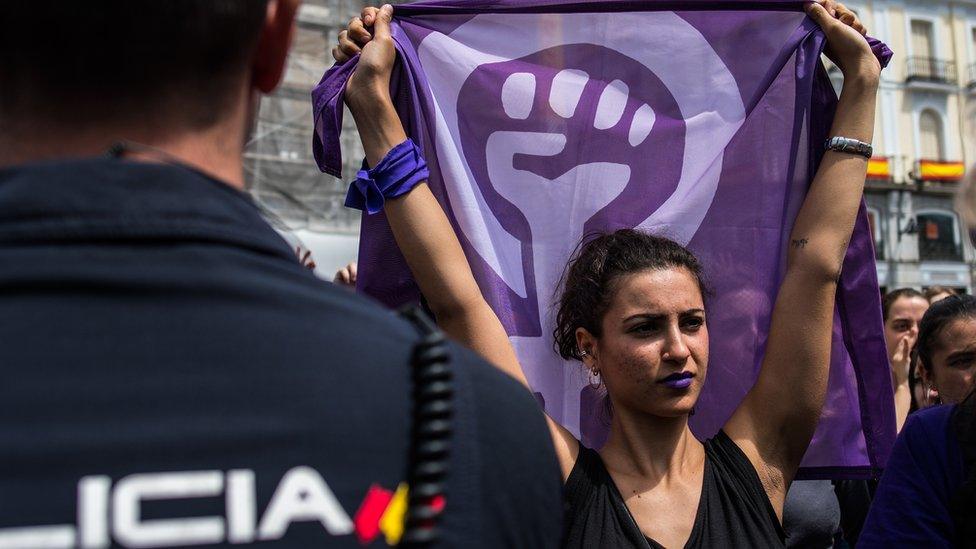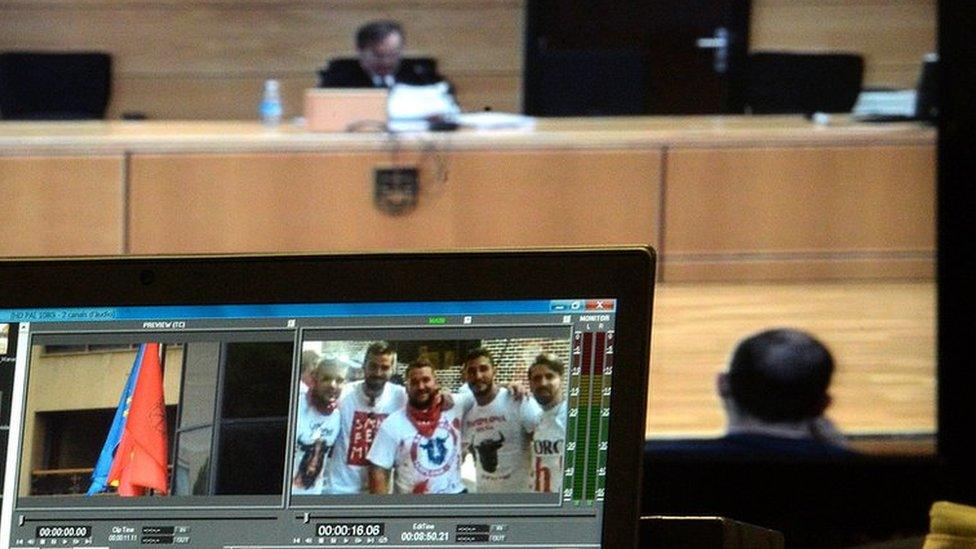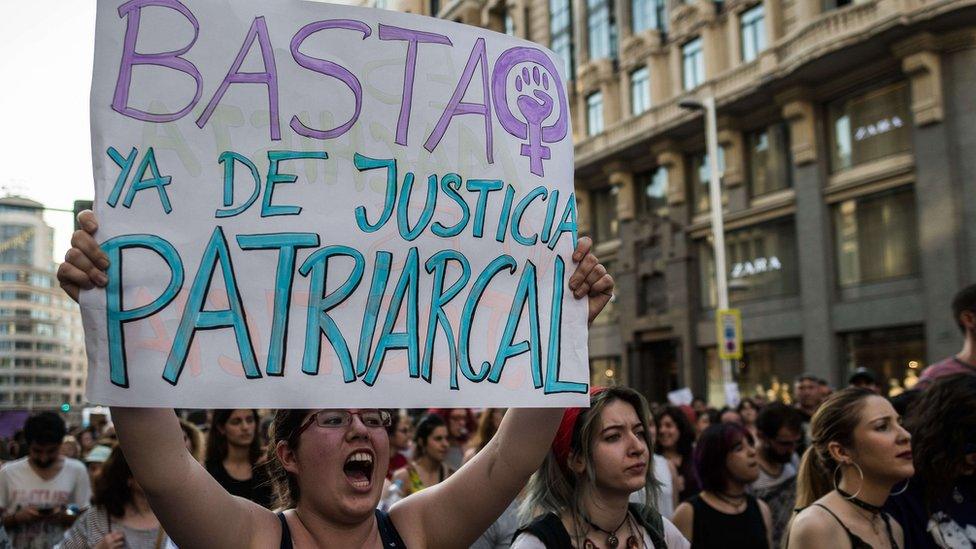Spain 'wolf pack' sex attack gang not rapists, say judges
- Published

The "wolf pack" case has sparked protests across Spain and led to an expert panel to review the law on rape
A Spanish court's controversial decision to clear five men of gang rape has been upheld by five appeal judges, and the group are now set to go to jail for a lesser offence of sexual abuse.
There were protests across Spain when the men, who became known as La manada (the wolf pack), were acquitted of rape and then later freed on bail.
The appeal judges agreed that the 18-year-old victim was not assaulted as no intimidation or violence was involved.
The case now goes to the Supreme Court.
"We don't like it," the teenager's lawyer said, after the five judges in the northern Navarre region upheld the nine-year jail terms for abuse.
Under current Spanish law, an offence of rape has to involve sexual assault, which includes violence or intimidation.
Significantly, two of the five judges said that the attackers had used intimidation to carry out a "continuous offence of sexual assault" and called for 14-year jail terms. But they were outvoted by the other three judges.
The case sparked such a wave of revulsion that a committee of experts was formed to reform Spain's penal code on sexual violence.
Among those outraged by the verdict was Pedro Sánchez, who has since become prime minister and has promised to introduce a new law on sexual consent.
What did the "wolf pack" do?
During the San Fermín bull-running festival in July 2016, in the crowded streets of Pamplona, the 18 year old was led to a basement where five men in their late 20s surrounded her and had unprotected sex.
Some of the men filmed the attack on their phones and sent it around their WhatsApp chat group entitled "La manada". A police report said the victim maintained a "passive or neutral" attitude throughout the scene, keeping her eyes closed at all times.

Why is intimidation so key?
By James Badcock, Madrid
The appeal court accepts as proven that the "wolf pack" victim did not give consent to sex and that the five men took advantage of circumstances and their own position of superiority to carry out the crime of sexual abuse.
But, crucially, the ruling states that abuse of a situation of manifest superiority does not itself constitute intimidation, nor was any act of violence committed.

A picture of the five men in Pamplona was shown during the trial
The ruling describes the victim's role as one of "passive suffering" but finds no firm evidence of acts or threats designed to intimidate her.
In their words: "The key is the actual nature of the intimidatory act carried out by the active party, rather than the reaction of the victim to it."
Essentially, the judges are saying that the men cannot be blamed for her reaction to the situation, even though they were happy to take advantage of the teenager's weak position.
Supporters of reform will say the ruling shows why a consent-based rape law is required.

How Spain has reacted to latest ruling
Pamplona Mayor Joseba Asiron was among several figures to say that an appeal would be lodged against the latest ruling.
"There appears to be a very clear gap between society and certain sections of the judiciary," he complained, insisting that all of Pamplona supported the woman.
A lawyer acting for four of the convicted men said he too would appeal to the Supreme Court, arguing that what took place was "consensual sex between six adults". The men visited a court in Seville on Wednesday as part of their bail conditions.
But Deputy Prime Minister Carmen Calvo said the verdict enhanced the victim's credibility and she drew attention to the two appeal judges who considered that the attack constituted rape rather than abuse.
"It's foreseeable that the five convicted men will go to jail immediately," she said.
Protest rallies against the appeal decision were being organised on Wednesday evening in Seville, Madrid and other cities.
- Published17 July 2018
